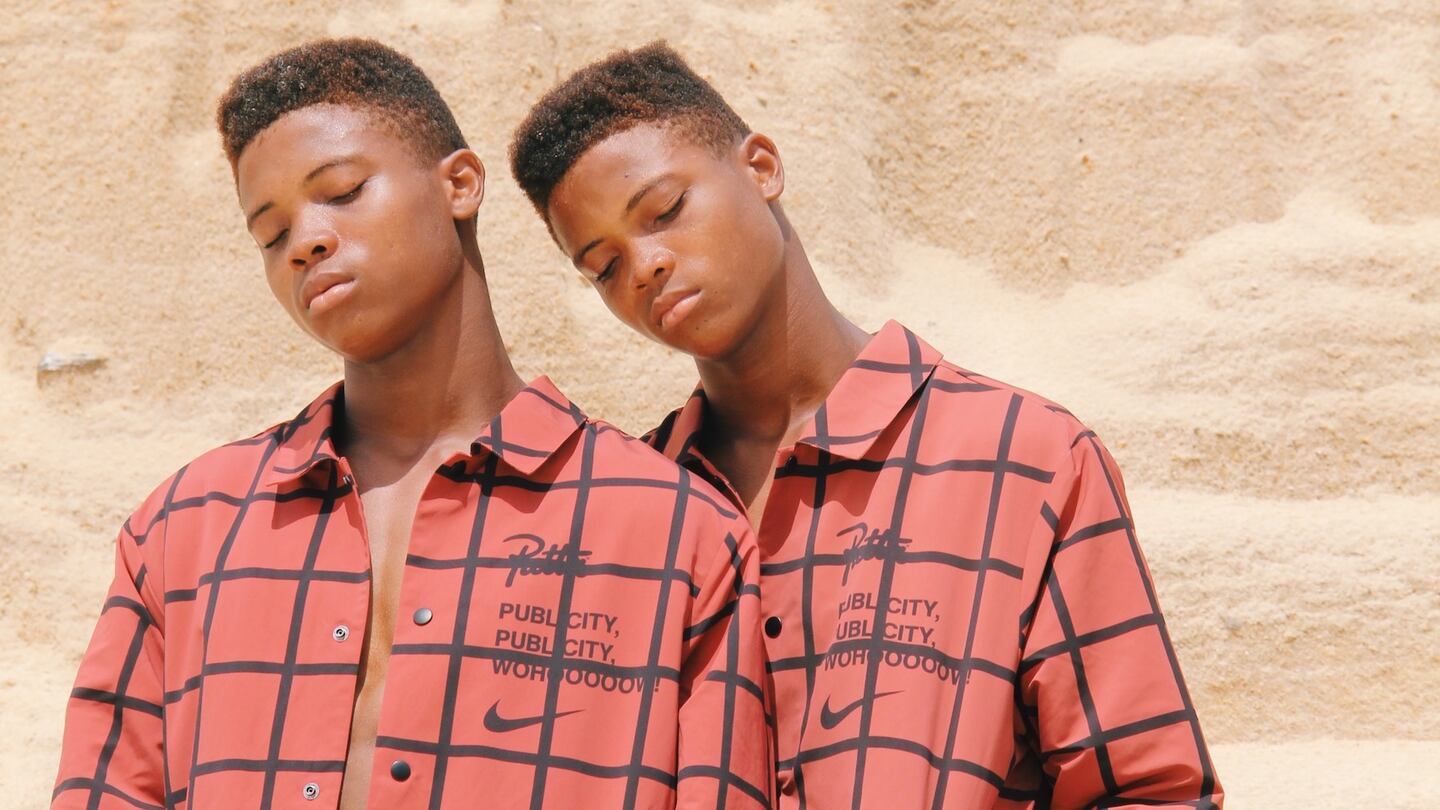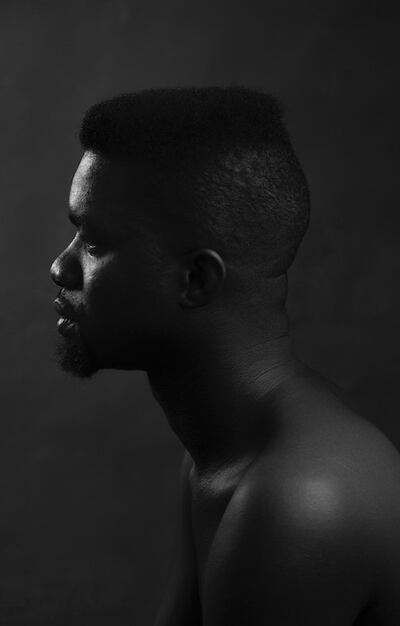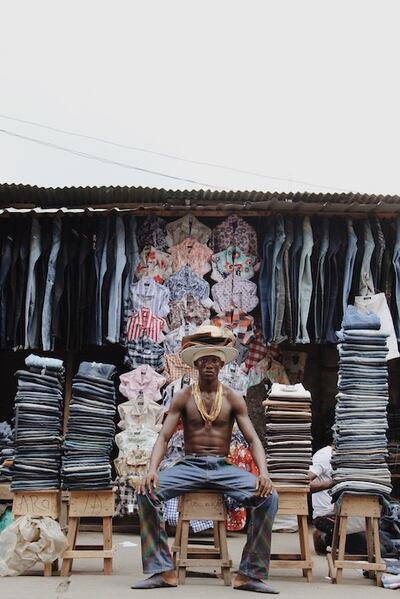
The Business of Fashion
Agenda-setting intelligence, analysis and advice for the global fashion community.

Agenda-setting intelligence, analysis and advice for the global fashion community.

Follow in the path of fashion insiders: apply for your next job on BoF Careers now.
As a philosophy graduate from the University of Lagos, the self-taught photographer Stephen Tayo developed his creative medium guided by his academic studies. “I look at photography beyond the skill to ask questions about perspective,” he told BoF.
After university, Tayo built up an understanding of the fashion industry — and how to navigate it — as an intern assisting fashion designers and stylists in Nigeria, “paying attention to everything and everybody, to different conversations.”
As he developed his craft, his street style shots in Lagos caught the eye of Vogue editor Chioma Nnadi, which Tayo attributes to the launch of a career working with the likes of Apple, Nike and Gucci, the New York Times, Dazed and Vogue.
ADVERTISEMENT
From his Ibeji series, featuring identical twins and their significance in Yoruba culture, to his work capturing the sartorial elegance of sapeurs in the Republic of the Congo’s Brazzaville, Tayo’s portfolio of work celebrates communities and unique cultures. “How can we look at fashion beyond the beauty, to pay attention to a community and identity? […] More than anything now, fashion is about storytelling,” says Tayo.

Now, the fashion photographer shares his career advice.
What attracted you, and held you, to working in photography?
Even while studying philosophy at the University of Lagos, I think I’ve always nursed the idea of taking photographs, whether making portraits of my friends in class or landscape images at my university, so I’ve always practiced photography.
You don’t have to go to photography school — you can learn on YouTube now, just by watching or reading books. But going to university opened my mind towards self-learning. That’s the university education process. Studying philosophy ensured I looked at photography beyond the skills to ask the questions about perspective.
I also wanted to make a distinction with my photography — how can we look at fashion beyond the beauty, to pay attention to a community and identity, and what a certain style represents, or what a certain colour means. I am more interested in the meaning of what brings these things together.
How did your career begin?
I didn’t learn photography or fashion in university, so all of my knowledge has come from experience and from talking to people. I started as an intern, assisting fashion designers, stylists — engaging in the fashion spaces in Nigeria. I needed to learn from people who had already established themselves to acquire knowledge.
ADVERTISEMENT
I think everyone needs to learn from the industry in which they want to develop themselves. It was important for me to understand how to get into a community that I knew nothing about — learning how to navigate and adapt into a system that you want to break into was a key aspect for me, so I was paying attention to everything and everybody, to different conversations.
When you pick mentors, it should also be in line with the kind of photography you’re looking into.
I was also interested in how to manoeuvre the system and how to learn about sustaining my fee. You have to understand that sometimes, photographers get paid after 30 days, after 90 days, sometimes over 100 days. So, you have to learn how to navigate and understand the management of funds. All of this knowledge I learnt from interning and having conversations with these people.
How did you develop your personal style?
I studied a lot of Malick Sidibé, Samuel Fosso, James Bannon, Hassan Hajjaj — I was in love with how they come up with their composition. Those are the predominant influences I had. While picking your inspiration as a photographer, you can pick a wide range of photographers but there has to be some coherency. A lot of the photographers I studied have focal points in common.
When you pick mentors, it should also be in line with the kind of photography you’re looking into. It should be very specific towards fashion or architecture or sports photography. Everyone obviously has their own focus point in photography and they just need to nurture and choose their inspiration carefully. It has to be coherent — it shouldn’t be, you’re inspired by wedding photographers today and tomorrow you wake up and say you want to do architecture, or the next day, fashion.
How might aspiring photographers research and develop their medium?
When it comes to research, there’s a lot of books, which always have further references to follow, there’s also online and travel. However, for me, the focus point was: how do I develop myself from here [in Nigeria] first? I’m still developing myself — it’s an ongoing process — so how do I really build on what’s available right on my doorstep? In Nigeria, there are so many cultures, so many conversations, so much diversity, I felt like I needed to build on what is happening from here first before I started getting jobs and travelling outside the country.

I’m based in Lagos, where everything is still developing. The fashion community is still growing, and even at this incubation level, there’s still so many things to learn from those who have already done so much. There’s a lot you can learn from people who have spent time developing their own brand.
ADVERTISEMENT
There’s nothing like community stories — every community matters, every conversation matters. I think people need to just dare to build on their community and that conversation. More than anything now, fashion is about storytelling and every designer should be able to communicate where they’re coming from and tell those stories. To me, that’s more of the currency of fashion right now.
What was your first major project?
I really have to give kudos to Chioma Nnadi, the now editor of Vogue.com. She was one of the first, if not the first editor, who gave me a shout-out in Vogue magazine. I felt that was instrumental to my career and I’m forever grateful to her.
Now, we talk sometimes on Instagram and I might reach out to her to share what I’m thinking about for work and we’ve continued to work together over the years on different commissions and projects. I think there’s always a room for conversation. We just have to learn how to keep conversations going as creatives. I learned a lot and worked really hard from just the opportunity she gave me, going on to work with Apple, Nike, Havana Club with Skepta, Gucci.
When working with a commercial partner, the conversation has to be very straightforward — both parties have to speak about how they would like to carry the stories out. I think communication is key, and just make sure you keep checking in on the direction of what is being worked on.
How do you choose which projects you want to work on?
It’s always straightforward for me because it has to align with what I’m already doing. If it doesn’t really correspond to my area of aesthetics or just what I think I’m good at, I don’t feel the need to necessarily do it. In some cases, I might recommend a different photographer in Lagos, for example, who is better suited to the brief if they want to work with someone in architectural photography — and I would willingly connect them by email.
How do you recommend aspiring talent spend their time during lockdown?
The idea of just watching a lot of films, keeping busy and reading online is all we’ve got for now. We also need to stay grateful for that because at least it’s something. I think we just have to embrace that and use it as we can. We just have to embrace and adapt to what we can right now.
I think it’s important for us to start having those conversations about what success is and I think every creative should have it at the back of their mind.
It’s tough but maybe do some trips locally. That could also be a nice investment — try to do a lot of sightseeing locally, even in your residence or neighbourhood, even the next city — just enjoy those things that we would never have thought are that important when now, that’s all we’ve got.
What is essential to success in your field?
I think the word success is very subjective. For example, somebody having Instagram followers doesn’t necessarily equate them to being successful. I think it’s important for us to start having those conversations about what success is and I think every creative should have it at the back of their mind. There’s going to be ups and downs but now is the time for us to define what success really means to us.
For example, selling 10 out of 20 pieces could be a success rather than having to sell all 20 still — or selling product in a city where nobody knows your name. Pay attention to what is lacking and be able to communicate success using your own terms.
Discover jobs related to photography on BoF Careers:
E-Commerce Photographer, Axel Arigato — Gothenburg, Sweden
Supervisor Still Life Studio, Mytheresa — Munich, Germany
Photo Production Assistant, The RealReal — Secaucus, United States
Assistant Photographer (Entry Level), The RealReal — Perth Amboy, United States
Junior Photography Assistant, Old Navy — San Francisco, United States
Check out this week’s new partners and openings on BoF Careers, the global marketplace for fashion talent.
BoF Careers provides essential sector insights for fashion designers this month, to help you decode fashion’s creative and commercial landscape.
This week, talent expert Suki Sandhu OBE and advisor and executive search consultant Karen Harvey shared insights on the core skill sets expected of leaders and managers in the fashion industry today. BoF Careers shares key learnings from the event.
Discover the most exciting career opportunities now available on BoF Careers — including jobs from Ermenegildo Zegna Group, JW Anderson and A-Cold-Wall.